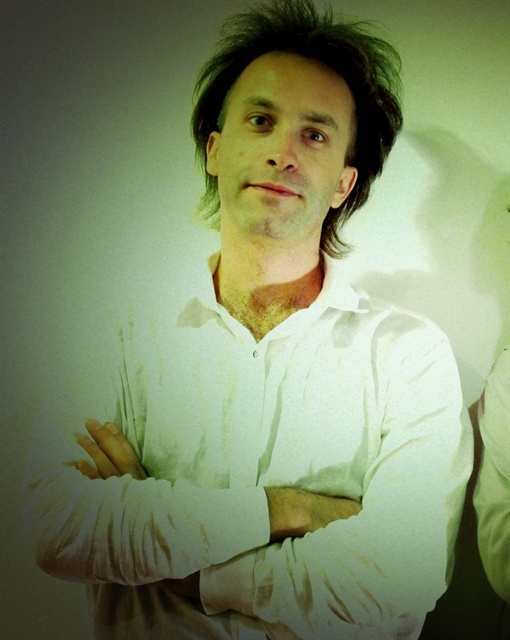 Life & Style
Life & Style

Musician Jean-David Caillouet performed with French and Vietnamese artists to close the European Music Festival on November 30 in Hà Nội.

|
| Multimedia artist Jean-David Caillouet. Photo courtesy of the artist |
Musician Jean-David Caillouet performed with French and Vietnamese artists to close the European Music Festival on November 30 in Hà Nội.
The performance was a multimedia concert entitled Lettres De Hanoi (Letters from Hà Nội).
Việt Nam News reporter Nguyễn Thúy Bình interviews Caillouet about the performance and multimedia concerts.
How did you represent French musicians at the European Music Festival?
As a French musician based in Thailand and travelling a lot throughout Southeast Asia, I brought my own European perception and sensibility to this festival but also an overall understanding of some of the history that characterises the region.
There were also two other French musicians participating at concert bringing their own culture and musical sensibility.
This project was initiated by Lương Huệ Trinh and Emmanuel Labrande.
They wanted to create an event which would bring new music to a wide audience.
Labrande also suggested the theme for the show and gave us the book on which we based our compositions.
What did you perform at the concert?
The performance was based on a series of reflections and observations written by Jean Tardieu in 1928 while he was doing his military service in Việt Nam.
He describes in great detail the impressions Việt Nam had on him at the time as well as the ambiguous relationships and interconnections happening in the context of French colonial Indochina.
Could you tell us about musical pieces composed for the concert?
There were many types of compositions at the concert which are all connected together through a thematic thread.
The eight pieces each flow into one another throughout the 60 minutes, combining spoken words, figurative archival videos as well as abstract visuals, acoustic music and electronic music, notated passages and improvisations.
I collaborated with Vietnamese musicians last July and SơnX and Lương Huệ Trinh in the last few years.
What is the role of multimedia concert?
Our lives are multi-sensory and our life experiences are perceived through not only our ears but our eyes and touch, etc.
It makes a lot of sense to combine various media to express artistic ideas. When we go to the cinema we already experience an artistic multimedia experience where sound, music and images are all combined together to express a narrative and a series of subtly reconstructed experiences.
It makes a lot of sense today for music concerts to go beyond the limitations of absolute music when the content or vision is appropriate.
In many musical cultures around the world, the idea of music being disconnected from a visual experience didn't really ever exist before. We would always have music as intrinsically connected to a theatrical set, costumes, dance, etc.
How was the multimedia concert received by the audience?
I have been working on many performances combining various modes of perception.
Recently I have been working on a series of 'performance-documentaries' where the audience is watching a documentary, listening to a concert, learning facts about life, reflecting on philosophical issues and enjoying a mix of musical aesthetics all at the same time.
I think everyone always perceives a concert slightly differently and that is probably even more the case for a concert which has a wider set of aesthetic parameters like a 'multimedia' concert.
When I design a multimedia show the content tends to be dictated by the themes chosen.
Connecting sounds to images gives an artist many opportunities to take the audience through a journey. The subconscious mind can be triggered through the eyes and the ears.
Through the possible audio visual juxtapositions that can create metaphors or even poetic meanings. Silence can be very powerful when one uses sound.
The absence of image can be very dramatic when you use film. Generally audiences respond very enthusiastically to these experiences.
I also believe that curating a show with many dimensions can help new audiences enjoy musical aesthetics they would normally find difficult to understand.
What does a multimedia artist need to be successful?
Eyes and ears experience life. A multimedia artist needs to be receptive to life experiences. Obviously they need to learn some techniques and develop their visual sense as well as their musical/ sonic senses.
Understanding what they are trying to say and how to employ a language which combines both oral and visual experiences.
It often is like building a mosaic or a puzzle creating a script where various elements drive the narrative.
Today, we often use digital tools to edit, process and trigger those elements so it is obviously important to learn how to become fluent with those tools.
I often improvise purely with images, or painting walls with projectors in response to live music. I make music in response to visual and I learn to express images through sound.
For me, those two worlds are always interconnected. VNS




